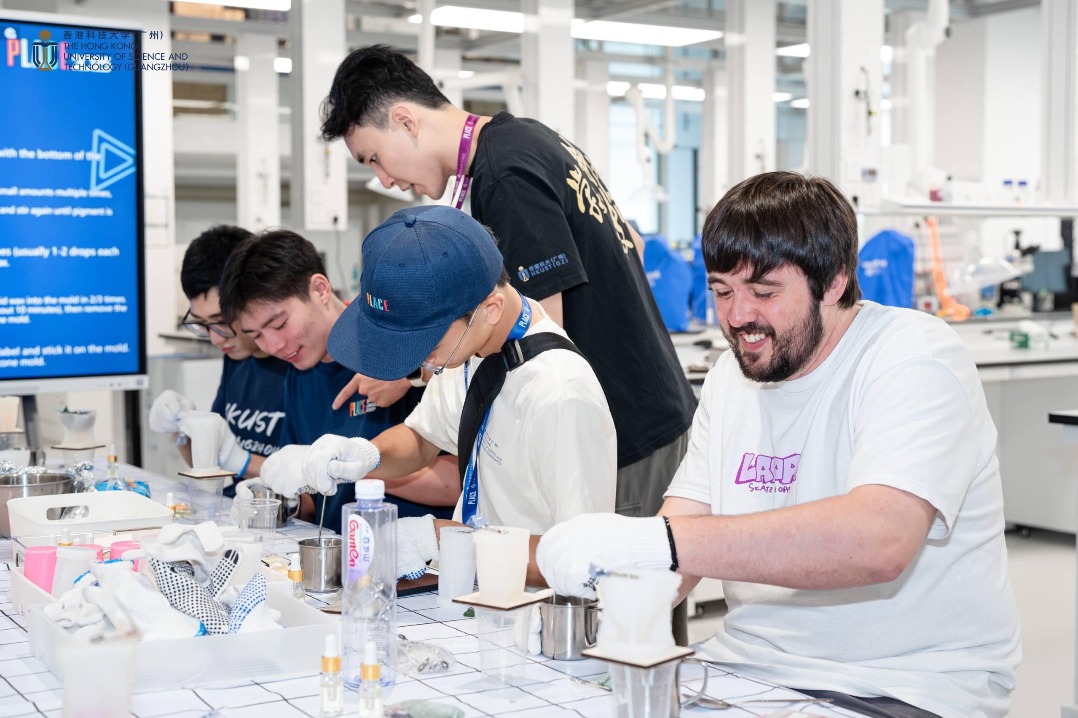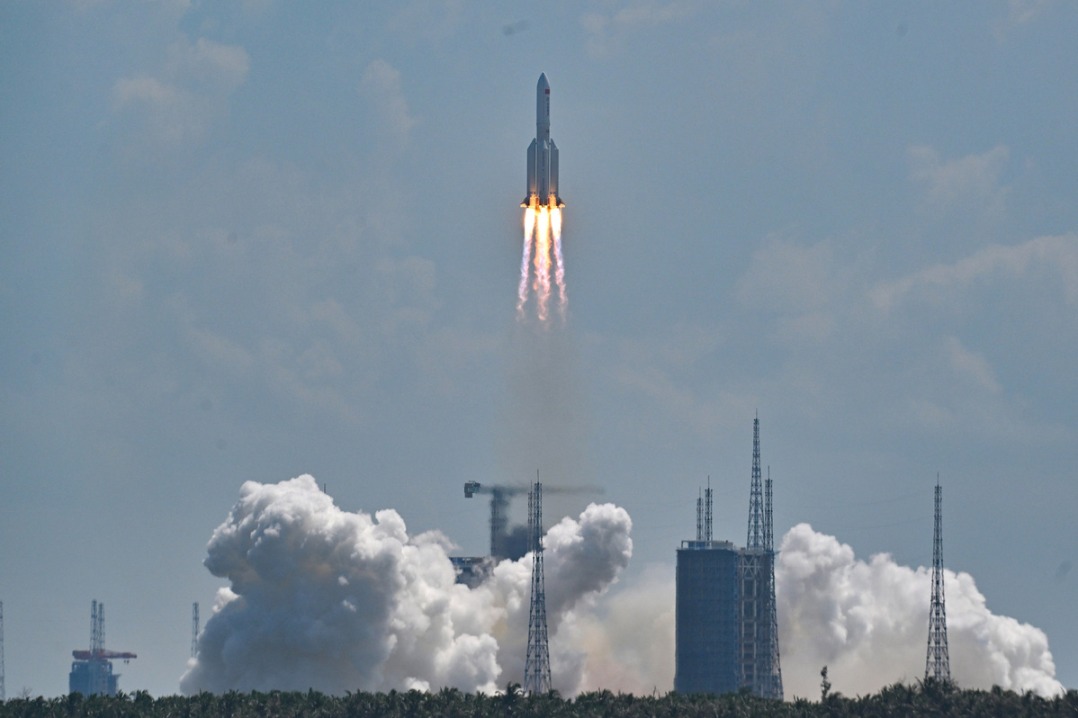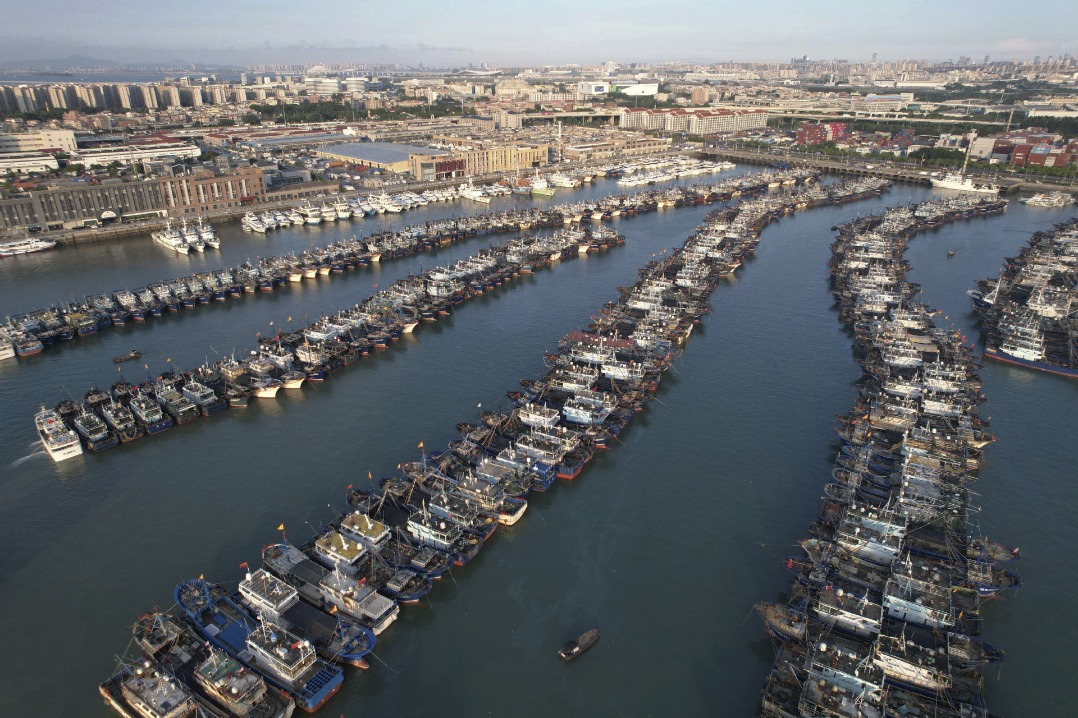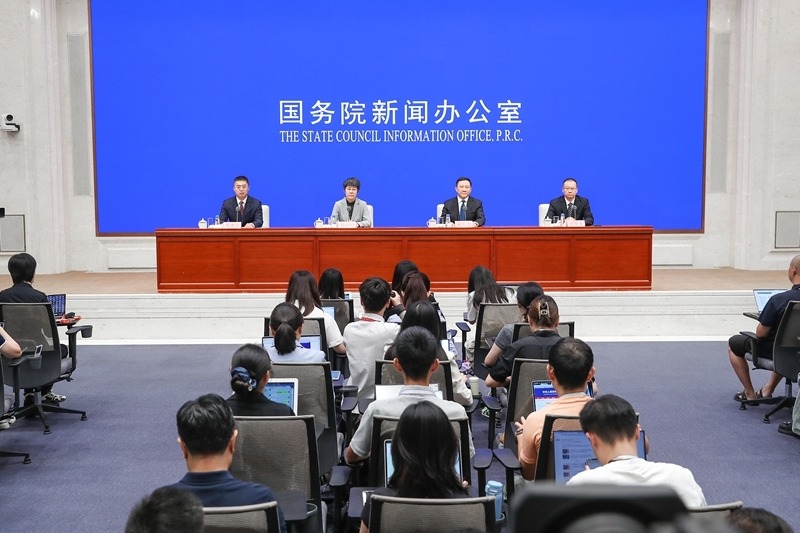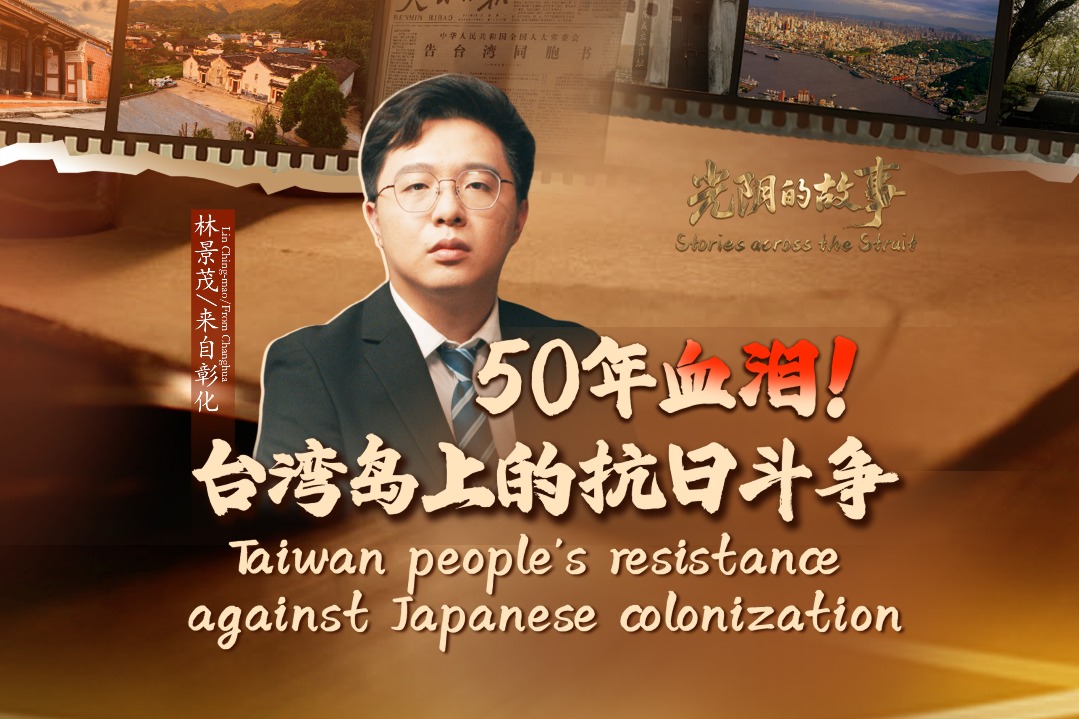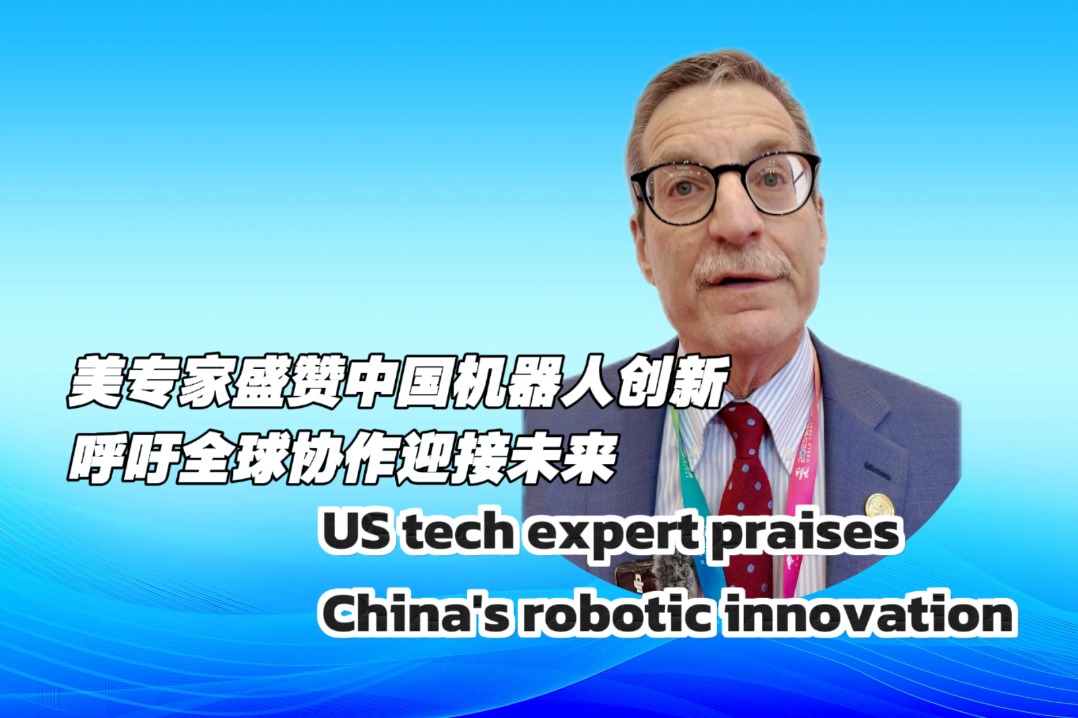DPP slammed for selling out Taiwan
Polls show leader Lai's approval ratings at lowest point since he assumed office

A Chinese mainland spokeswoman on Wednesday criticized the Lai Ching-te administration in Taiwan for prioritizing political self-interest over public welfare, following recent polls showing Lai's approval ratings were the lowest they've been since he took office last year.
The surveys, including one from Formosa Publishing and other "pro-independence" institutions in Taiwan, indicated a significant drop in satisfaction with Lai's performance, with dissatisfaction and distrust both exceeding 50 percent.
This decline in approval comes as Taiwan society expresses dissatisfaction over the United States' recent announcement of a 20 percent tariff on most of Taiwan's exports. This rate is higher than the 15 percent export tariff imposed on Japan and South Korea, which are major competitors to Taiwan, posing a substantial challenge for Taiwan businesses.
In response, the Lai administration of the island stated that the tariff rates are still negotiable and mentioned the possibility of increasing investments in the US by an additional $400 billion, sparking criticism in Taiwan.
At the same time, the US reportedly planned to impose a 100 per-cent tariff on semiconductor imports while announcing that Taiwan Semiconductor Manufacturing Company, the island's pillar industry, will invest $300 billion in the US to build the world's largest wafer factory in Arizona.
Zhu Fenglian, spokeswoman for the Taiwan Affairs Office of the State Council, accused the Democratic Progressive Party-led administration of having "no bottom line" in selling out Taiwan and being obedient in its response to US demands. She noted that the proposed $400 billion investment equates to half of Taiwan's annual GDP.
Zhu said that the DPP's willingness to hand over TSMC and allow the US to extract value from Taiwan's advantageous industries demonstrated a lack of commitment and capability to safeguard Taiwan's economic development and the welfare of its people.
She said that Taiwan could have mitigated rising external risks and uncertainties by strengthening economic cooperation with the mainland. Instead, she accused the DPP of harboring a misguided desire for "independence" through reliance on external forces, ultimately harming Taiwan's development interests.
Meanwhile, Hsiao Hsu-tsen, executive director of the Taiwan-based Ma Ying-jeou Culture and Education Foundation, criticized the Lai administration for its inadequate response to the southern Taiwan floods last month, noting that many residents remain without proper resettlement, leading to widespread public discontent.
Hsiao accused the ineffective Lai administration of focusing on political ideology to divide the island facing the severe impact of the tariff increase on Taiwan's industries and people's livelihoods.
"This kind of government is an 'internal hostile force' for the Taiwan people, and people should reject the DPP and Lai," he said.
Zou Zhiqiang, deputy secretary-general of the US-based Alliance for China's Peaceful Reunification, said the recent rejection of Lai's planned "transit" through New York by the US indicated the country was unwilling to damage Sino-US relations over Taiwan, disproving the DPP's claim of a "rock-solid" relationship with the US.
Zou said that Taiwan is not a core interest for the US and is seen merely as a pawn that could be discarded at any moment.

















